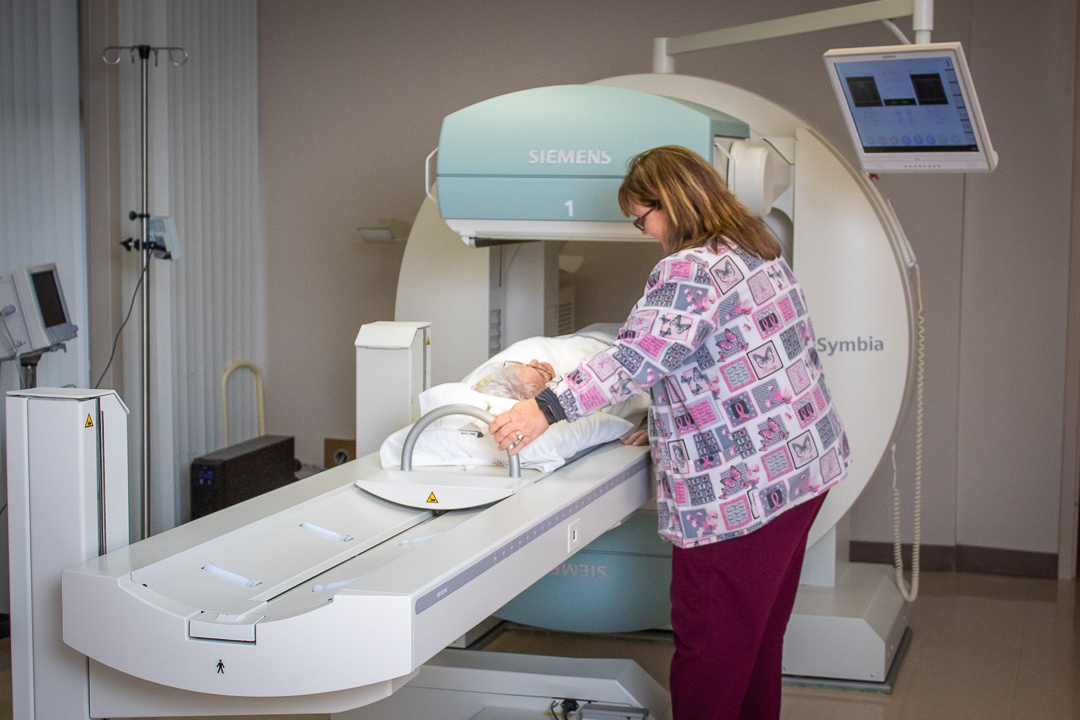Nuclear Medicine
A nuclear medicine scan is another tool physicians use to look inside the body. It provides an image that evaluates organ function and locates disease or tumors. The primary purpose of a nuclear medicine scan is to show the function of the organ or tissue being evaluated to determine if the organ is working properly. A nuclear medicine scan can also show the size, shape and position of the organ being scanned.
The following tests are the most frequently performed at BCMH in the Nuclear Medicine Department:
- Myocardial perfusion – A Nuclear Medicine stress test that examines blood flow and function of the heart.
- Hepatobiliary Scan – Identifies the function of the gallbladder.
- Bone Scan – Evaluates bones for fracture, infection, arthritis, or for presence or spread of cancer.
- Thyroid Uptake and Scan – Measures the percentage of function in the thyroid, and the size and shape of the gland.
- Gastric Emptying Study – Measures how quickly the stomach empties.
- Parathyroid Imaging – A function study of the parathyroid for patients with increased calcium.
- Mag 3 Renal Scan – Analyzes kidney function.
What to expect for your exam:
You will be given a small amount of radioactive tracer for your scan. This may be done either by injection or orally. This material collects in the organ being examined and gives off gamma rays. A gamma camera detects the energy and works to produce images and measurements of the organ.
BCMH Stress Lab
BCMH performs three different types of stress tests in the Stress Lab.
- Myocardial Perfusion / Nuclear Medicine Stress Test – Two sets of images are taken. For resting images, a radioactive tracer is injected and the patient must wait one hour. Then the patient goes to the stress lab. After the heart is stressed, the patient waits an hour and is scanned using the Siemens dual-head camera.
- Stress Echocardiogram – Ultrasound of the heart, before and after walking on the treadmill. Uses sound waves to make a moving picture of your heart.
- Treadmill Stress Test – Patients Walk on the Treadmill until they achieve 85% of their max target heart rate, according to age.

